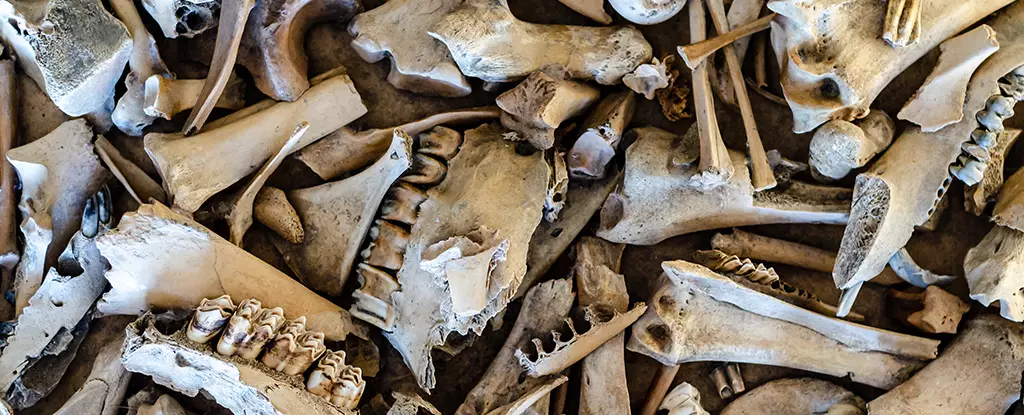For centuries, the narrative surrounding Neanderthals has been marred by outdated stereotypes of brutishness and primitiveness. They were depicted as mere cave-dwellers driven by basic survival instincts—hardly the complex thinkers they truly were. Recent discoveries, however, are forcing us to confront a starkly different picture. Instead of dismissing our extinct relatives as primitive ancestors or evolutionary dead-ends, new evidence suggests they possessed a remarkable level of sophistication, strategic planning, and resource management.
The concept of a “Neanderthal fat factory” in ancient Germany challenges long-held assumptions about their cognitive abilities. This wasn’t an incidental byproduct of hunting or scavenging but a highly organized operation that involved deliberate carcass processing, resource allocation, and technological skill. Such activities imply foresight, planning, and an understanding of ecology—traits traditionally associated with modern humans. This emerging perspective demands a reassessment: Perhaps Neanderthals were not just surviving but actively managing their environment with a nuanced understanding that rivals early Homo sapiens.
The Complexity of Resource Management and Cultural Capacity
The site in Neumark-Nord, with its extensive collection of over 100,000 bone fragments from hundreds of large mammals, reveals a level of logistical planning previously unseen in Neanderthal archaeology. Their deliberate butchering, coupled with signs of tool use and controlled fires in concentrated areas, points to an organized landscape of resource exploitation. This was not a haphazard collection of leftovers but a carefully orchestrated process. The Neanderthals managed their environment, orchestrated hunts, and engaged in long-term planning to maximize nutritional yield—a clear indication of a complex cognitive landscape.
By extracting and caching fat-rich carcass parts for later use, these early humans demonstrated a sophisticated understanding of nutritional needs and resource preservation. They knew the value of fat, not only as energy but as a crucial element for their survival in sometimes harsh climates. This strategic behavior is remarkably akin to some practices observed in modern foragers and early agricultural societies. Far from the “dumb brute” stereotype, Neanderthals seem to have been adept managers of their ecosystems, capable of manipulating their environment to meet their needs.
Implications for Our Understanding of Human Evolution
While Homo sapiens eventually thrived and outlived Neanderthals, these recent revelations compel us to question the simplistic narrative of human superiority. The idea that modern humans exclusively possessed the cognitive edge overlooked the prowess of Neanderthals. Their abilities to craft complex tools, brew beverages, and possibly even engage in abstract thinking suggest a shared evolutionary legacy—a mutual shaping of cognitive capacities that should inspire more nuanced discussions about early human innovation and adaptability.
Furthermore, this new evidence underscores that intelligence is multifaceted and context-dependent. Neanderthals’ resourcefulness and strategic behaviors exemplify a form of intelligence adapted to their environment. As we continue to uncover their mutli-layered skills, we might realize that early humans and Neanderthals were more alike than previously thought—each developing their own cultural and technological trajectories that reflect diverse adaptations, not primitive regression.
Reevaluating Our Connection to the Past
What does this mean for our ongoing quest to understand human origins? It suggests that the story is far more intricate than a simple linear progression from primitive to civilized. Instead, Neanderthals were active participants in shaping their world, wielding tools and strategies that reflect a form of ingenuity often underestimated. Their extinction, then, might not be due solely to inferior intellect but perhaps to a complex interplay of environmental shifts, competition, and interspecies interactions that we are only beginning to understand.
This shift in perspective opens the door for more respectful and considerate engagement with fossil evidence. If Neanderthals were capable of such strategic and sophisticated behaviors, it warrants a reevaluation of how we interpret their remains and their societal structures. They are not relics of ignorance but representatives of an extinct yet highly capable branch of human history—entities deserving recognition beyond the simplistic labels of primitiveness.
In reimagining the narrative, the Neanderthal story becomes one of resilience, adaptability, and unrecognized intelligence—elements that enrich our understanding of human evolution and remind us to approach our ancestors with humility and admiration rather than condescension.

Leave a Reply